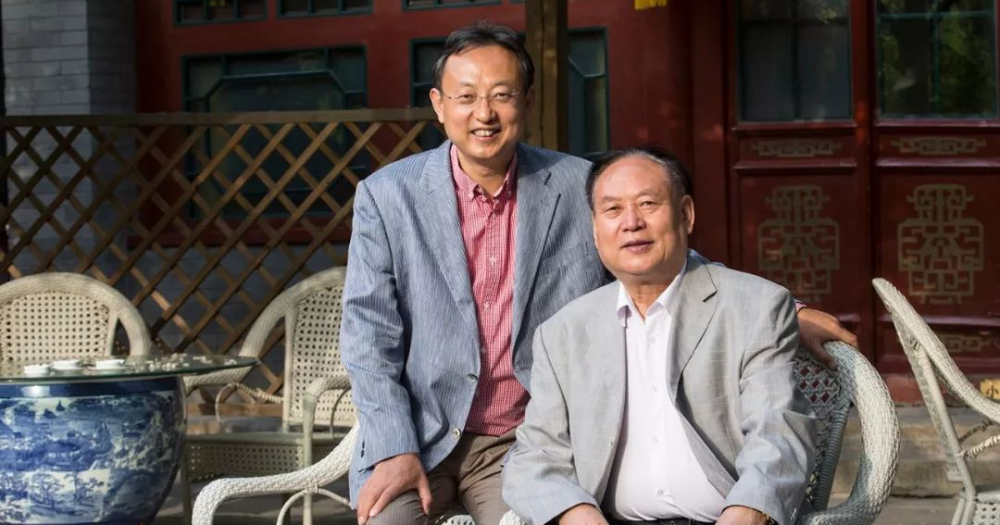A China-born billionaire, Zhao Tao, who reportedly paid millions to get his daughter into Stanford University in the United States, has been revealed to be a Singapore citizen who holds a Singapore passport.
Following the scandal over his daughter's entry to Stanford, several media outlets dug up Zhao's background.
One Shanghai-based newspaper, Xinmin Evening News, wrote about how the beginning of the Zhao family's wealth has something to do with Singapore even before he got his citizenship.
Forbes listed Zhao Tao’s net worth as US$1.8 billion and referred to him as a citizen of Singapore.
Gained fame in Singapore decades ago
Zhao made quite an impression among Singaporeans close to three decades ago when he was still a visiting Traditional Chinese Medicine (TCM) doctor from China, according to Xinmin Evening News.
Zhao's father, Zhao Buchang, was a rather prestigious doctor back then.
The elder Zhao, who was 55 years old at that time, received an invitation in 1992 to represent China at an international conference on Traditional Chinese Medicine (TCM) and Acupuncture in Singapore.
He attended the conference with the 26-year-old Zhao back then.
At the conference, the audience and media folks witnessed how the younger Zhao managed to "heal" a paralysed old woman with his acupuncture skills.
It was reported that he stuck six to seven silver needles into the woman's legs.
About 20 minutes later, the woman, who had been bed-ridden for at least six years after a stroke, managed to stand up, albeit a bit wobbly.
She could even walk afterwards.
First pot of gold in Singapore
According to Xinmin Evening News, Singapore's Chinese evening daily news Lianhe Wanbao wrote about this on Dec. 8, 1992, hailing Zhao's acupuncture technique as "China's Magical Needle".
After the incident, quite a few Singaporeans sought treatment from Zhao for their ailments at the Chinese embassy.
Three months later, Zhao allegedly treated thousands of stroke or paralysed patients.
He was so sought after that each needle he stuck cost US$300 which was about S$583 back then.
In three months, Zhao earned a whopping US$900,000.
A year later, Zhao Buchang was able to start Shandong Buchang Pharmaceuticals with the US$40,000 that his son remitted back home.
Past controversies
It was exposed in 2007 that Buchang Pharmaceuticals was involved in the bribing of the head of China's then-State Food & Drug Administration, Zheng Xiaoyu.
Zheng was sentenced to death for corruption in 2007 and was executed on July 10, 2007.
Buchang Pharmaceuticals' emphasis on advertising and marketing for Zhao's company was also exceptionally heavy.
In fact, its marketing spending superseded the spending on research and development.
In 2018, Buchang Pharmaceuticals earned RMB80 billion (S$16.1 billion), of which only RMB4.8 billion (S$967 million) was devoted to research and development.
Buchang Pharmaceuticals was also the first pharmaceutical company that invested in advertisements for their products back in 1995.
By simplifying the medicinal terms in advertising, they managed to boost the sale of their flagship product Naoxintong Capsules tremendously.
However, there were concerns over some of their products.
It was reported that in 2015, consumption of their products allegedly led to allergies, liver failure, and damages to digestive and nervous systems.
Statement in response to recent scandal
Since news of the Stanford admissions scandal broke, Buchang Pharmaceuticals, responding to media queries, said they are currently looking into the matter.
In addition, they said Buchang Pharmaceuticals is "a company that operates normally, and that the connection between its major stakeholders and the company itself is not very strong".
Top photo collage from Sohu
If you like what you read, follow us on Facebook, Instagram, Twitter and Telegram to get the latest updates.
